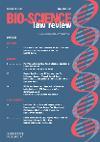Bio-Science Law Review - Volume 18 - Issue 1

EDITORIAL
THE GREAT DIVIDE? THE INTERACTION OF PATENT LAW AND ANTITRUST IN THE PHARMACEUTICAL MARKETS
GORDON HARRIS Gowling WLG (UK) LLP
The persistent friction between the competition authorities and intellectual property owners continues to rumble on, with new actions being taken by DG Comp in the last few months. Is this approach justified, or should more respect be paid to the benefits which flow from IP protection? We look at some of the recent history and judicial comment to see if a balance can be found.
ARTICLES
UK SPCS AND REGULATORY DATA PROTECTION, POST-BREXIT: FUTURE AND REFORM
PAUL ENGLAND AND ANDREW MARKS Taylor Wessing, London
In substance, the Regulation (EC) No 469/20092 (SPC Regulation) was largely preserved in UK law at the end of the Brexit transition period on 31 December 2020. However, SPCs must be based on a first marketing authorisation (MA), which permits the placement of the SPC protected product on the market. Yet the system of granting MAs in the United Kingdom, as well as adapting to an independent UK context, has had to reflect the Protocol on Ireland/Northern Ireland (‘the Protocol’), resulting effectively in partitioned MAs between Northern Ireland and Great Britain. This has had a knock-on effect for SPCs, introducing some subtle, and some more obvious, complexities that applicants need to be aware of. The Protocol has also affected how data and market exclusivity protection (regulatory data protection) apply to protect reference medicinal products against abridged applications for generic versions of those products. At the same time, the freedom the UK legislator now has to make its own SPC and regulatory data protection law, and for the UK courts to apply it, means there are also opportunities for improvements.
ILLUMINATING REGENERON: UK SUPREME COURT’S SUFFICIENCY DECISION ‘RECAST’ FOR ALL CLAIMS
NICOLE JADEJA, CHRISTOPHER SHARP, SARAH TAYLOR AND ANNA HARLEY
Pinsent Masons LLP
In a long running patent dispute between Regeneron and Kymab, the UK Supreme Court held that for product claims defined by class to be sufficient, the skilled person must be able to make substantially all embodiments of products within the scope of the claim without undue burden. This article discusses the application of the Regeneron principles in Illumina v MGI and how they may influence life sciences innovation and litigation.
UK IPO CONTINUES STRICT APPROACH TO MARKETING AUTHORISATIONS FOR SPC PURPOSES IN ERBER AKTIENGESELLSCHAFT
FRED NICOLLE AND ANDREW HUTCHINSON Simmons & Simmons LLP
The UK IPO considers if an animal nutrition additive meets the marketing authorisation requirement to be granted an SPC. The authors look back at previous decisions which found that marketing authorisations for medical devices did not meet this requirement and conclude that animal nutrition additives also fail for similar reasons.
CASE COMMENTS
PRELIMINARY INJUNCTIONS AND COMPENSATION IN PHARMACEUTICAL PATENT CASES: THE (BLOCKBUSTER) UK DAMAGES CLAIM FOR LYRICA (PREGABALIN)
CHRISTOPHER STOTHERS Freshfields Bruckhaus Deringer, London
Should a generic manufacturer be allowed to launch its product in the face of a patent asserted by the pharmaceutical innovator? – a question that is typically determined on an application for a preliminary or interim injunction. And if such an injunction is lifted at trial, should the generic or third parties be compensated for the delay? Dr Stothers considers the relationship between these two questions and also looks at the issue of compensation in the damages claims relating to Pfizer’s Lyrica (pregabalin).
FRENCH COURT APPLIES CJEU ROYALTY PHARMA TEST FOR OBTAINING SPCS FOR THE FIRST TIME
MARINA JONON AND JULES FABRE Pinsent Masons, Paris
In three recent judgments, the Paris Court of Appeal has for the first time applied the test set out by the CJEU in the Royalty Pharma case for obtaining SPCs on products covered by a functional definition in the basic patent and which have been developed after said patent, under Article 3(a) of the SPC Regulation. In these judgments, the Paris court further considered the requirements of Article 3(c) of the SPC Regulation when one of the co-applicants to an SPC has already obtained an SPC for the same product but on the basis of a different basic patent.
